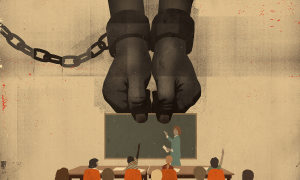text
Multimedia
Civil Rights History Project: Mary Jenkins

Mary Jenkins describes growing up in the Jim Crow era and frequently being told, “You can’t”—both by a mother terrified of what might happen to her daughter if she stepped out of her expected place, and by a system that had institutionalized segregation as a way of life.
February 25, 2019




